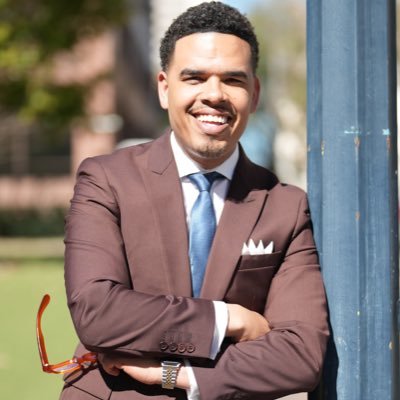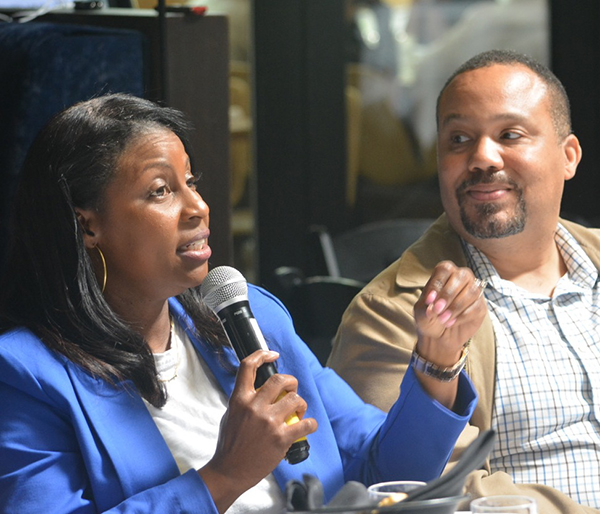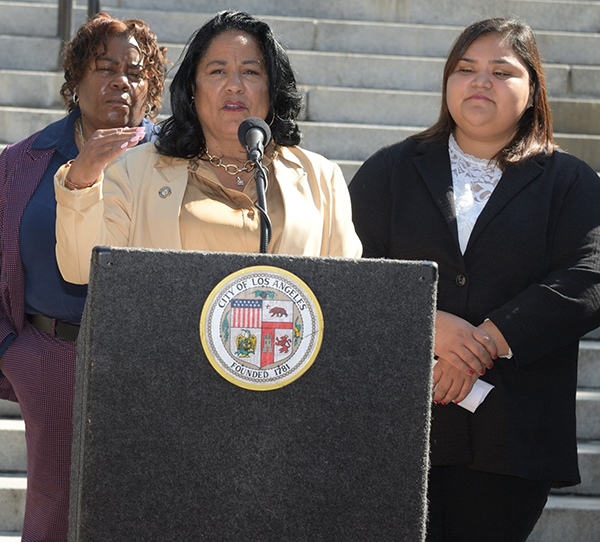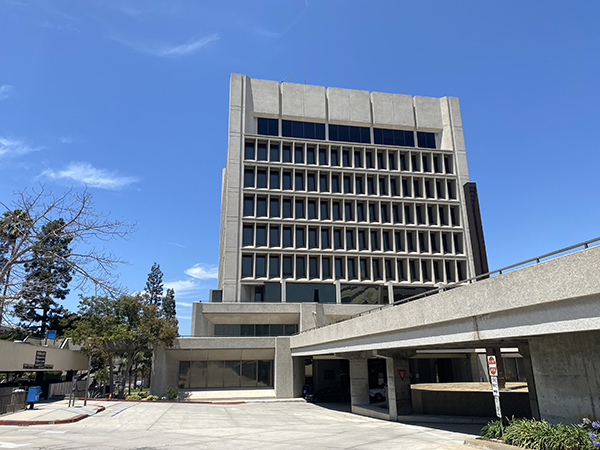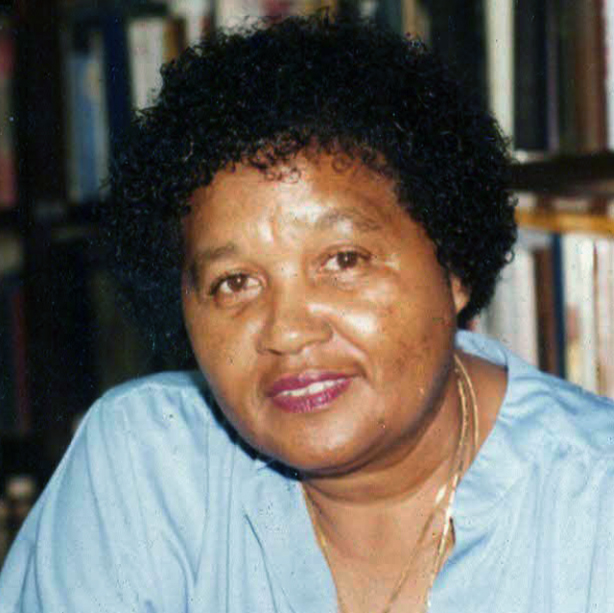By Darlene Donloe, Contributing Writer
LOS ANGELES — After a year of uncertainty, speculation and negotiations, the Mayme Clayton Library and Museum finally has a new home.
The museum’s board of directors recently signed a loan agreement that calls for its revered collection of African-American films, photographs, artifacts and artwork to be housed at Cal State Dominguez Hills (CSUDH). The signing comes exactly a year after the museum was ordered to vacate the old Culver City Courthouse, where it had been housed for 13 years.
University President Thomas Parham said the collection of more than two million items would be housed in the Gerth Archives and Special Collections. He said the university will immediately start cataloging and archiving the collection so that it is “more visible and accessible” to the public.
“Part of our challenge will be to have it inspected and moved. Part of it will be to archive, appraise and chronicle and even restore it,” he said. “We will digitize it so we can make it available to showcase it to the public. That will take months.”
Once the process is complete, Parham said the university will provide public lectures, host visits by schools, use it as a student resource, host Zoom meetings on Black culture, and showcase different elements of Black history that “may have been unknown to a broader population of youth and adults.”
“We want everyone to be able to access this collection,” he said. “At a time when our nation is struggling to dissipate some of the biases, assumptions and profound ignorance that is too pervasive in the world, we need artifacts and stories that provide a different vision of who Black people were and are.”
Parham said the loan agreement is for 10 years with an option to extend. He called the partnership with MCLM not only historic, but timely.
“It’s timely in the sense that they have trusted the university … and allowed us to do what we do in terms of bringing this to the community at-large and making this more visible within the broader Southern California community,” he said.
The museum’s interim executive director, Steven Fisher, also hailed the agreement as “truly a partnership.” He said the museum’s prized collection now “will get the benefit of being inventoried, cataloged, and getting into the national infrastructure. It will get a chance to be in the national database system.”
Fisher and Parham both said the museum’s board will continue to play a consulting role in overseeing and managing the collection.
“They do not give up their role as a board,” Parham said. “We look forward to collaborating with the MCLM board of directors to provide the public with one of the most important collections of materials by and about Americans of African descent. Owing to the social justice roots of the campus and its demographic makeup, we believe that there could be no better place or steward for the collection than this university.”
Fisher agreed, adding that it was important to house the collection in a university setting.
“We are about education and creating awareness of the contribution of African Americans in this country,” he said.
He stressed, however, that the agreement is a loan and that the Mayme A. Clayton Collection of African American History and Culture is not gifting the collection to the university.
“It is still owned by us,” he said. “We still own the collection [and] we anticipate doing partnership things on and off-campus.”
Parham said while the university would like to own the collection, ownership is less important than public access.
“The public cares little about whether the collection on campus is loaned or gifted. It’s about access,” he said. “Ultimately my decision was based on the question of whether the university would guarantee a different level of access to the collection than the public has had before. The answer is – yes.”
“We have a tremendous library, refrigerated rooms, and books from the 1400s in our library,” he added. “The motivation to house this collection is about this campus. Our campus is founded on the roots of social justice. We always wanted to sustain and increase our relationship with the broader community. What the public cares most about is to give them access to a magnificent collection.”
Stephanie Brasley, the school’s library dean, said the collection is particularly noteworthy in this current climate.
“When individuals have access to materials that invite them to challenge their biases and assumptions and enables them to enhance their knowledge base about people of different cultures, the collection then serves as an empowering community asset,” she said.
County Supervisor Mark Ridley-Thomas, who was concerned about the preservation of the collection, applauded both parties for coming to an agreement.
“With Cal State Dominguez Hills serving as a responsible steward for the collection, future generations will be able to know the joy, excitement and inspiration of seeing these artifacts and learning from them,” he said. “I cannot think of a better way to honor Dr. Mayme Clayton’s vision and legacy … than to return her collection to their university roots.”


